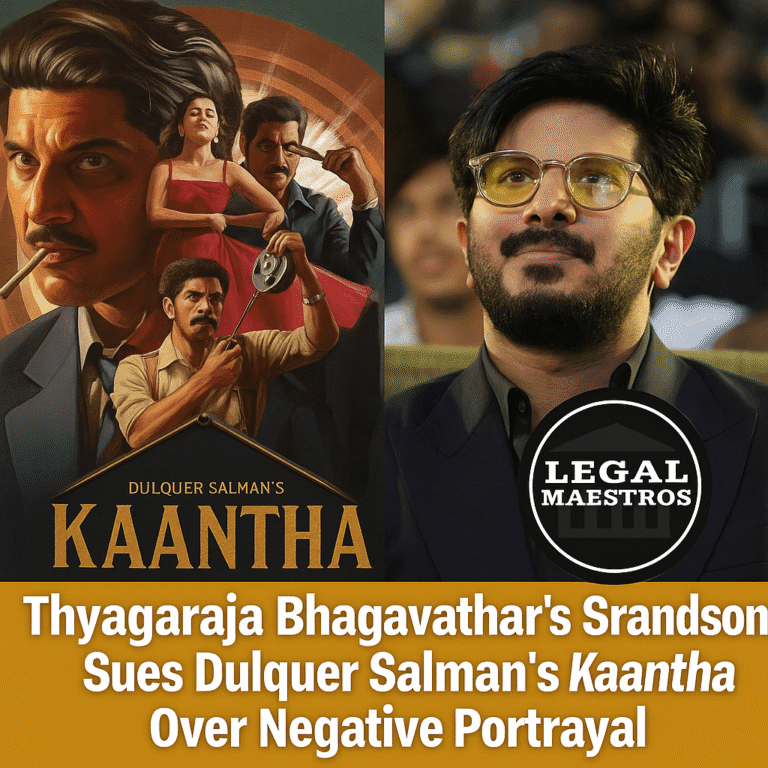
Supreme Court Bench of Justices B.R. Gavai and Augustine George Masih Clarifies Non-Applicability of 2012 Amendment in Haryana Parole Violation Case
Intro
The Supreme Court of India rendered a crucial ruling in the case *Karan Singh v. State of Haryana*, therefore addressing the issue of sentencing for parole violations under the Haryana Good Conduct Prisoners (Temporary Release) Act, 1988 on April 8, 2025. The appeal concerned whether a crime carried out before to the amendment could be prosecuted retroactively under the Act’s changed minimum punishment clause. Emphasizing the basic idea that penal laws cannot be enforced retroactively, the Supreme Court decided in the appellant’s favor. This case emphasizes important constitutional protections pertaining to justice in criminal law, liberty, and sentence.
Background and Case Factual Information
Karan Singh, the appellant, was sentenced to life in 2007 after being found guilty of murder under Section 302 of the Indian Penal Code. In 2009 the High Court maintained the conviction. On April 21, 2010, he was given parole for six weeks out of his term. At the end of the parole term, he did not turn in his surrender though. Later on June 30, 2010 he was arrested.
His non-surrender resulted in a FIR issued under Section 8 and 9 of the Haryana Good Conduct Prisoners (Temporary Release) Act, 1988. On November 13, 2010, he was found guilty of this offence and given a two-year hard sentence. His appeal was denied in 2013; the same fate greeted a revision petition before the High Court in May 2024.
For any queries or to publish an article or post or advertisement on our platform, do call at +91 6377460764 or email us at contact@legalmaestros.com.
Under Section 302 IPC on September 26, 2024 Karan Singh was awarded remission for his main life sentence while serving this extra one. But he stayed locked for over ten more months just because of his punishment under the Prisoners Act. He contested this ongoing custody before the Supreme Court.
Key Legal Provisions and the Amendment
The case centred on Section 8 and 9 of the Haryana Good Conduct Prisoners (Temporary Release) Act, 1988. Section 8 gives authority to arrest inmates who refuse to turn themselves in within the designated temporary release time. Section 9 outlines the penalty for such a transgression. Originally, Section 9 authorized a fine and up to three years’ imprisonment as penalty without defining a minimum sentence.
Under the Haryana Good Conduct Prisoners (Temporary Release) Amendment Act, 2012 the Haryana government changed Section 9 in 2012. This change instituted a two-year mandatory minimum sentence. The main questions were whether this revision applied to Karan Singh’s 2010 offense and whether the High Court’s denial to lower his sentence depending on the changed clause was justified.
For any queries or to publish an article or post or advertisement on our platform, do call at +91 6377460764 or email us at contact@legalmaestros.com.
Basic Legal Problem Before the Court
The main question was whether an offence carried out prior to the modification might be subject to retroactive application under the revised Section 9 clause imposing a minimum sentence. Based on the 1988 Act as it stood at the time of the offense, Karan Singh’s conviction and sentence let for discretion in sentencing, including reduced punishment or fine.
The Court also looked at whether the appellant’s ten more months of sentence, following his remission in the main case, was sufficient punishment for a one-time parole breach.
Appellant’s Arguments:
Representing Karan Singh, Senior Advocate Rishi Malhotra said the appellant had already completed a life term and was awarded remission. The extra term under the Prisoners Act stood as the sole obstacle preventing his release. He argued that the additional minimum term cannot be applied retroactively since the offense happened before the 2012 modification. Furthermore, he said, unless the court expressly orders differently, all sentences in a criminal case should ideally run simultaneously.
For any queries or to publish an article or post or advertisement on our platform, do call at +91 6377460764 or email us at contact@legalmaestros.com.
He underlined that the appellant’s offense under the Prisoners Act was one-time and not habitual activity. A severe extra punishment was therefore unnecessary. He asked the Court to take into account that the appellant had already served more than ten months beyond his main sentence and that additional incarceration would not really benefit anyone.
For More Updates & Regular Notes Join Our Whats App Group (https://chat.whatsapp.com/DkucckgAEJbCtXwXr2yIt0) and Telegram Group ( https://t.me/legalmaestroeducators )
Debate by the State of Haryana
The State of Haryana’s attorney fought the appeal. She turned to the changed Section 9 of the Act, which set a minimum sentence of two years. She underlined the significance of keeping the change in line with State policy against parole violators. She said the appeal should be thrown aside since the High Court had rightly maintained the sentence.
For any queries or to publish an article or post or advertisement on our platform, do call at +91 6377460764 or email us at contact@legalmaestros.com.
The State neglected to address the important reality, nevertheless, that the changed statute went into effect in October 2012 whereas the appellant’s offence occurred in June 2010 and the conviction followed in November 2010.
The reasoning and conclusions of the Supreme Court
The appeal was entitled to be granted, the Supreme Court declared. The Court reiterated the established legal rule that penal legislation cannot be enforced retroactively unless specifically expressed. It pointed out that the 2012 amendment became operative long after the appellant had committed the crime and had already been found guilty and sentenced. Consequently, the changed Section 9—which added a two-year minimum sentence—could not be followed regarding the appellant.
Under the original 1988 Act, the Court clarified, there was no minimum punishment. Less than two years or even a fine could be imposed by the trial court depending on its discretion. In this instance, the appeal courts confirmed the two years of incarceration the trial court had decided upon.
For any queries or to publish an article or post or advertisement on our platform, do call at +91 6377460764 or email us at contact@legalmaestros.com.



![JOB POST: Junior Associate at ASM Law Chambers, Jaipur [Freshers]](https://legalmaestros.com/wp-content/uploads/2025/11/Gemini_Generated_Image_8wrxer8wrxer8wrx-768x708.png)

